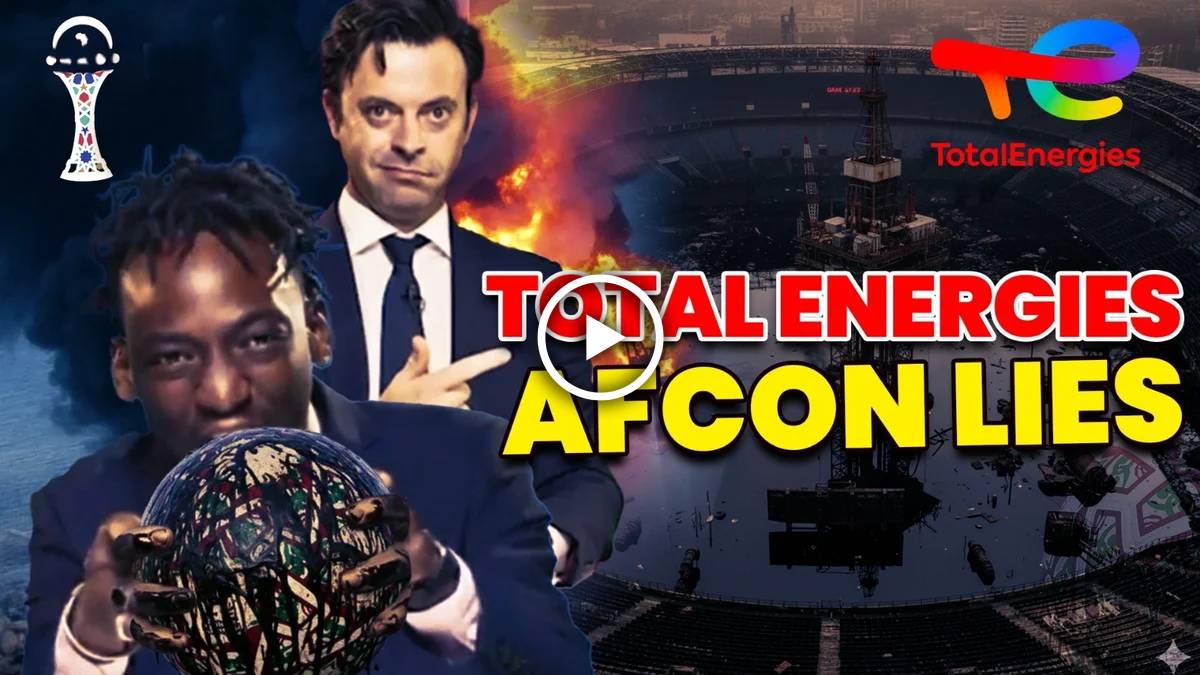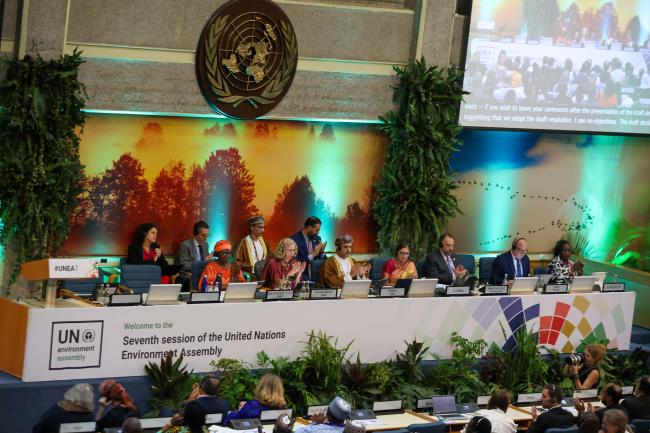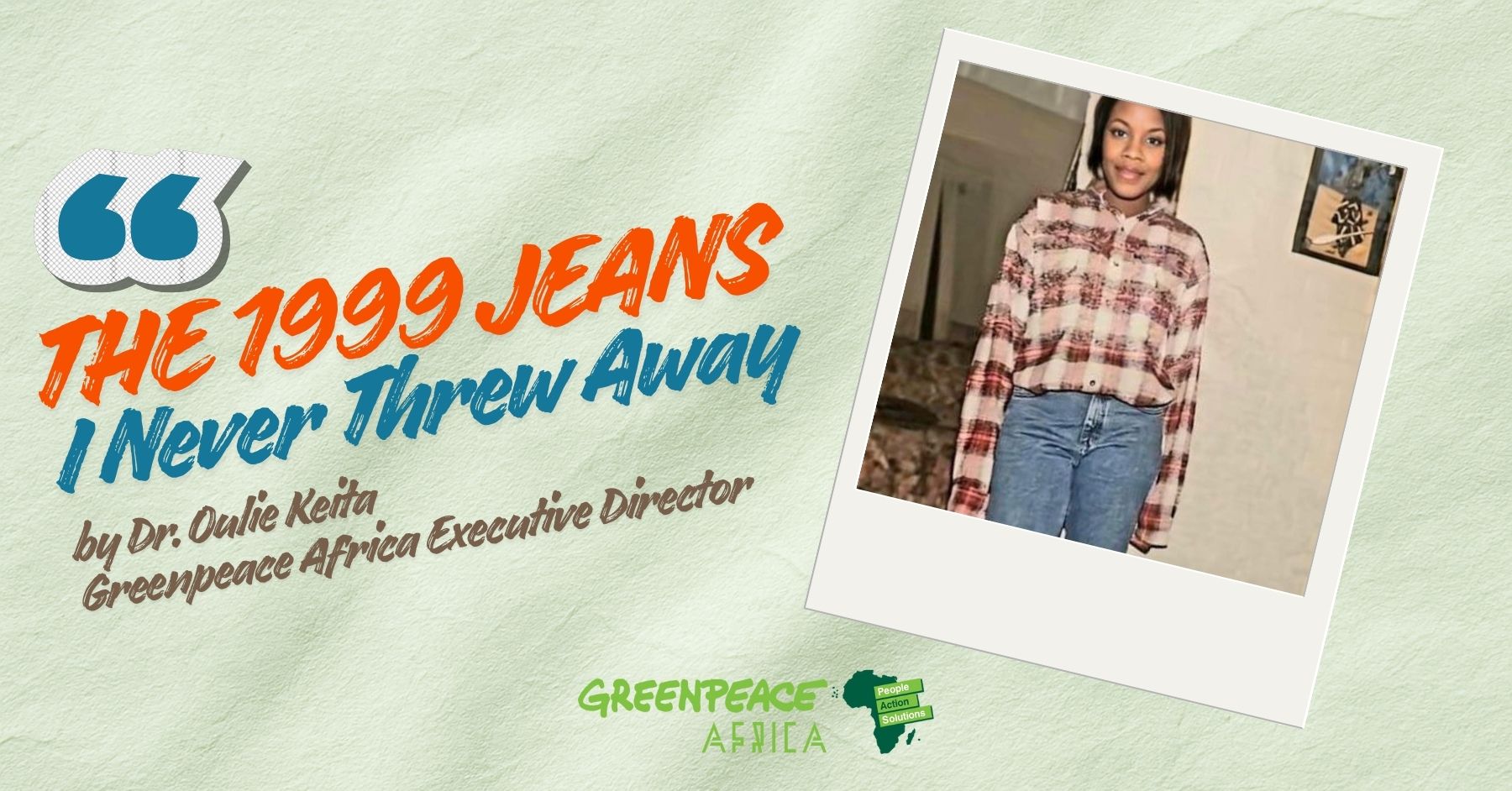Belém, Brazil, 15 November 2025 — Greenpeace joined more than 40,000 people at the Global Climate March in Belém to end the first week of the UN climate conference, today.
Activists carried messages demanding respect for the Amazon and to make polluters pay using a giant climate polluters bill showing projected loss and damage attributed to top oil and gas corporations[1]. The Global Climate March was organised by civil society organisations and Indigenous Peoples groups from several parts of the world.
Photos and videos of the Global Climate March will be available in the Greenpeace Media Library.
Carolina Pasquali, Executive Director, Greenpeace Brazil said: “We are tens of thousands here today, on the streets of Belém, to show negotiators at COP30 that this is what people power looks like. Yesterday we found out that one in every 25 COP30 participants is a fossil fuel lobbyist, proportionally a 12% increase from last year’s COP. How can the climate crisis be solved while those creating it are influencing the talks and delaying decisions? The people are getting fed up – enough talking, we need action and we need it now.”
Abdoulaye Diallo, Co-Head of Greenpeace International’s campaign to make polluters pay: “We are taking to the streets because, while governments are not acting fast enough to make polluters pay for their climate damages at COP30, extreme weather events continue to wreak havoc across the globe. That is why we are here, carrying the climate polluters bill, showing the projected economic damages of more than US$5 trillion from the emissions of just five oil and gas companies over the last decade. Fossil fuel companies are destroying our planet, and people are paying the price. Negotiators must wake up to the growing public and political pressure to make polluters pay, and agree to new polluter taxes in the final COP30 outcome.”
Sherelee Odayar, Oil & Gas campaign lead, Greenpeace Africa said: “Across Africa, the climate crisis is showing up as flooded homes, failed harvests and heatwaves, not as lines in a negotiation text. Governments are being pushed to take on more debt and cut public services just to pay for the damage. Making polluters pay is about flipping this injustice: instead of communities in Africa footing the bill, the fossil fuel corporations that knowingly caused this crisis must cover the costs of loss and damage, adaptation and a just energy transition. If COP30 does not agree on polluter taxes and new public finance for the global south, it will be choosing corporate profits over African lives and futures.”
At COP30, Greenpeace is calling for a Global Response Plan to address the 1.5°C ambition gap and accelerate emissions reductions in this critical decade; a new, dedicated 5-year Forest Action Plan to end deforestation by 2030; and the establishment of a new standing UNFCCC agenda item to drive New Collective Quantified Goal (NCQG) delivery, particularly scaling-up public finance from developed countries, and advance polluter-pays taxation to unlock scaled-up public finance for developing countries.
ENDS
Notes
[1] The quantification of economic damages since 2015 was provided to Greenpeace International by Prof. James Rising of the University of Delaware and Dr. Lisa Rennels of Stanford University. The analysis uses data from the Carbon Majors Database and the SCC methodology. The SCC was used by former US administrations and policy analysts to assign a dollar value to future damages from an additional ton of CO₂ between the year of its emissions through to the year 2300.
Emissions data for the oil and gas companies was provided by the Carbon Majors Database, which in turn sources emissions data from publicly available company reports.
Contact:
Greenpeace International Press Desk, +31 (0)20 718 2470 (available 24 hours), [email protected]



